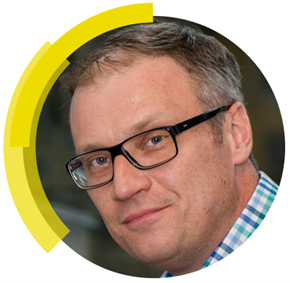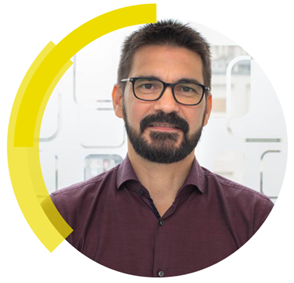
Did you attend the 2022 Chemical Science symposium on sustainable synthesis and catalysis? Catch up on the excitement in Andrei and Paolo’s joint round up of the event, as co-chairs of the conference alongside Ning Jiao.
In early November of 2022 the Royal Society of Chemistry convened an international conference dedicated to sustainability in chemical synthesis. The event was headlined by David MacMillan (2021 Chemistry Nobel Laureate) of Princeton University, who shared his lab’s recent advances in photoredox catalysis. Given Dave’s involvement with Chemical Science as the founding Editor-in-Chief, his talk was particularly meaningful and had set the tone for the rest of the conference. What followed was a series of lectures on a broad range of topics under the umbrella of sustainability. Matt Gaunt of Cambridge University described his lab’s efforts to site-selectively modify oligonucleotides. Danielle Schultz of Merck presented her team’s collaborative effort with the Sarlah lab of the University of Illinois at Urbana-Champaign to synthesize complex cyclic peptide natural products for medicinal chemistry applications. Daniele Leonori was able to dazzle the audience with his lab’s imaginative use of nitroarenes in organic synthesis. Shannon Stahl of the University of Wisconsin delivered a brilliant lecture that described his lab’s inroads in catalytic biomass processing using oxidation catalysis. Following his talk, Anne McNeil of the University of Michigan highlighted the role of electrochemistry in converting halogenated polymeric waste materials into value-added products.
The second day of the symposium kicked off with a session dedicated to organocatalysis. Takashi Ooi of Nagoya University took the floor and demonstrated his lab’s ongoing efforts to design new organocatalysts, while the subsequent lecture by Bin Tan of Southern University of Science and Technology focussed on asymmetric access to chiral biaryl molecules. Anat Milo from Ben-Gurion University shared her lab’s data-driven approaches to chiral organic catalyst design.
Moving on to other sustainable methods driven by light, Debabrata Maiti of IIT Bombay surprized the crowd with his mild conditions for photochemical palladium-catalyzed C-H activation. After that, Tim Noël of the University of Amsterdam presented his work in flow photochemistry, which is an integral part of our future when it comes to new ways of running chemical transformations. The second part of the day focused on biocatalytic strategies. Francesca Paradisi, Nicholas Turner, and Alison Narayan discussed strategies to evolve enzymes and use them for making useful molecules.
No conference is complete without an engaging poster session and this RSC event was no exception: throughout the two-day conference the participants had a chance to mingle with each other and enjoy posters. Like the selection of talks, the science described in the poster session represented a broad range of research topics and was a testament to the diversity of contributors. Several students were selected from the poster presentations and had a chance to present their work in exciting 5-minute segments.
Overall, the 2022 Chemical Science symposium on ‘Sustainable synthesis and catalysis’ offered a unique opportunity for networking and discussing the synthetic chemistry of the future. The hybrid meeting, hosted by the Royal Society of Chemistry in the beautiful Burlington House in London, was part of the Chemical Science symposia, which are held annually to discuss fast moving fields of chemical research. We are already looking forward to meeting you at the 2023 symposium.
 |
 |
|
Andrei Yudin |
Paolo Melchiorre |










